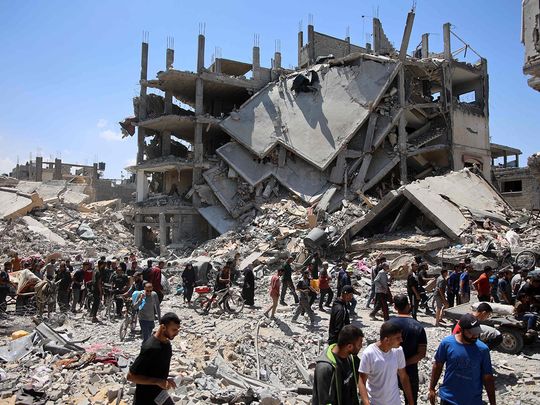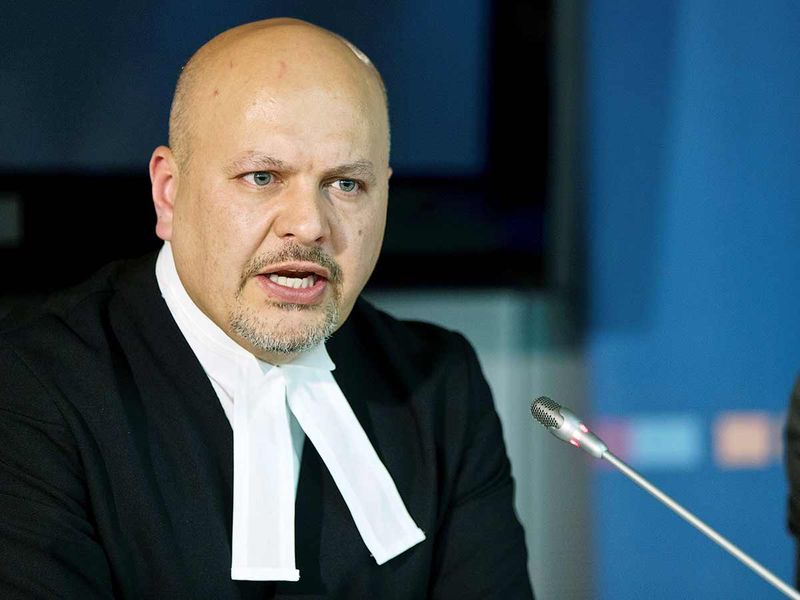
The prosecutor of the International Criminal Court (ICC) issued an indictment recently related to the war in Gaza, charging the Israeli Prime Minister and Defence Minister with several counts, including genocide and other war crimes. Simultaneously, the head of Hamas, its leader in Gaza, and his deputy were charged with similar offences.
Some have quickly misunderstood the accusations as a “conviction", reflecting a misunderstanding of the terminology.
The ICC was established at the beginning of this century as the first international court dedicated to the trial of war criminals. A total of 145 countries signed the Rome Statute, which is the legal basis of the court. However, several major countries, such as the US and Russia, are not signatories, nor are Israel and, naturally, Hamas, as it is not a state.
The preamble to the Rome Statute states: “The States Parties to this Statute, conscious that all peoples are united by common bonds, their cultures pieced together in a shared heritage, and concerned that this delicate mosaic may be shattered at any time, highlighting the fragility of human unity and the potential for conflict.”
This text suggests that humanity is in an eternal struggle, whether large or small, but written words are one thing, and reality is another.

Actions by both Israeli and Hamas
The ICC prosecutor has laid out the case — evidence collected, including interviews with survivors and eyewitnesses, authenticated video, photo and audio material, satellite imagery and statements from the alleged perpetrator group.
A statement from the prosecutor said the evidence shows that Israel has intentionally and systematically deprived the civilian population in all parts of Gaza of objects indispensable to human survival. Regarding Hamas leaders, it submitted that there was a widespread and systematic attack against the civilian population of Israel by the group.
The indictment by the ICC prosecutor against both Hamas and Israeli leaders does not imply an immediate conviction. The court will review the charges, and any conviction will come only after a thorough judicial process, which can be lengthy.
The final verdict may confirm that actions by both Israeli and Hamas officials constitute war crimes, but this determination is reserved for the court’s future decision.
It is normal for both sides to refuse these accusations. What concerns here is that the bloodshed and the steep price paid by the Palestinians.
Since the opening of the case at ICC, major countries, led by the US, have condemned the submission of Israel to the court. Some American legislators have even threatened to punish individuals working for the ICC. Other countries have also expressed their discontent with this procedure.
“Wars of the poor”
Ordinary people often overlook the complex web of international interests and alliances that influence the pressures exerted on international or regional institutions to shape their positions on any given case.
There is a common misconception that the mere filing of the case automatically would result in a conviction of Hamas. It is now clear that any anticipated outcome solely condemning Israel for war crimes has diminished. The world now faces, at least theoretically, an almost equal condemnation of both sides, a situation that does not satisfy the most affected party, the people of Gaza.
This makes us think deeply about the balance of international powers. The ICC has partly succeeded in addressing African conflicts, particularly the “wars of the poor” in countries like the Democratic Republic of the Congo, the Central African Republic, Uganda, and Darfur. However, the court has handed down mostly stalled verdicts. Furthermore, the ICC “has no teeth” to enforce any verdicts it issues.
Maybe South Africa hoped that the main Israeli figures involved in the war alone would have been condemned, and this would have been considered a moral victory for the Palestinian cause, but the prosecutor may have ignored relativism, even ignoring the texts laid down in the preamble to the Rome Statute, “It is determined to put an end to impunity for the perpetrators of these crimes (genocide) and thus to contribute to the prevention of such crimes.”
The final result is almost zero, and even negative for the Palestinian side. This brings us back to the issue of Palestinian priorities, which some seek to overlook. Without reforming the Palestinian house, the outcomes remain largely negative.
Indeed, while violence may bring temporary victories, it ultimately does not lead to peace.
Mohammad Alrumaihi is an author and Professor of Political Sociology at Kuwait University








_resources1_16a45059ca3_small.jpg)

